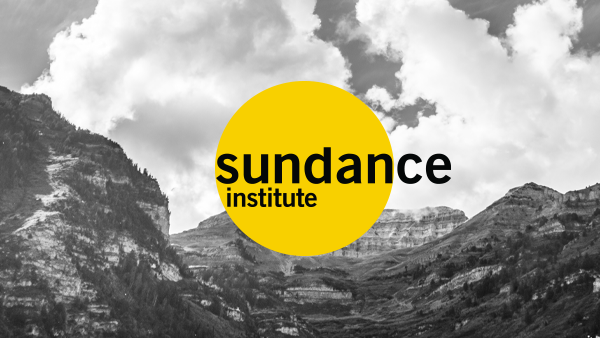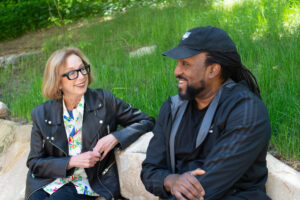Sundance Institute
Hebe has been a Sundance Film Festival Shorts Programmer since 2008, and is now in her fourth year with the team. We wanted to introduce you to one of the six people who are currently deciding on the fate of literally thousands of submissions. Stay tuned for the full team line-up.
1). Tell us a bit about your background? Outside of the Sundance Film Festival, do you have another job? If so, what is it?
I have been a film curator, festival panelist and juror for over ten years. I am a feature film Latin American Programmer for the Los Angeles Film Festival (LAFF) and Palms Springs International Film Festival and short film programmer for the Sundance Film Festival and LAFF. In addition to being a member of the Board of Directors, I also serve on the selection committee for Dance Camera West, a month-long dance film festival that brings the newest and most innovative examples of dance for the camera and dance media from around the globe. I am also the Co-Founder and Vice President of Lokro Productions, Inc., a film production company established in 1999 in Los Angeles, responsible for producing the 3-D World Film Expos in 2003 and 2006, the largest retrospectives on 3-D films ever presented in the U.S. By way of formal education in this field, I hold degrees in directing and screenwriting from the Universidad del Cine in Buenos Aires.
2). What is the role of a programmer in your opinion?
It is an explorer of uncharted territories. No matter how many mountains, rivers, or plains I have seen already, it is what lies ahead, as yet undiscovered, that keeps me going. My work doesn’t end when a film is selected. I like to think we help create a sense of community between the filmmakers, the audience and the industry at large. I feel a sense of responsibility toward the films and their creators, and want to see them shine, grow and strengthen their unique voices.
3). What attracts you to the short form?
The endless possibilities.The opportunity to experiment, to take risks. Short films like short stories are almost poetry. Every frame, every word, every sound counts.
4). What advice would you give filmmakers who are about to put their film out on the festival circuit?
Please show it to 20 complete strangers – no family, friends, workmates or acquaintances – random people. Ask them what they think about the film, write those comments down and wait a few days. Then read those comments and think about what you want to take in or let go. Filmmakers fall in love with their films. I would say, take a break from your film for a few days so you can see it more clearly.
5). Best Festival experience (can be any festival).
After months of emails and phone calls, finally meeting the filmmakers is very gratifying. I would say bowling with some of them at the Shorts Party at the 2010 Sundance Film Festival was pretty awesome!
6). Biggest pet peeve when it comes to your shorts screening experience (top clichés.or things to avoid)?
Brushing teeth (or any personal hygiene activity) in front of a mirror.
7). What are your thoughts on shorts distribution? How has it changed? What is the future? Who is doing it right and who isn’t?
I have seen the landscape for shorts changed dramatically in the last 10 years. First, it is much easier and cheaper to make and show films. Means and platforms have exploded. Cliché as it sounds, there are no rules anymore. What it works for short X, doesn’t work for short Y. What I know is that there is a need for short content out there. That not all the short stories are good stories. That the distribution work begins on the drawing board, and that every decision along the way seals the fate of a film. But, like I was told once, distribution should be in the back of one’s mind – to guide the filmmaker, not blind.




